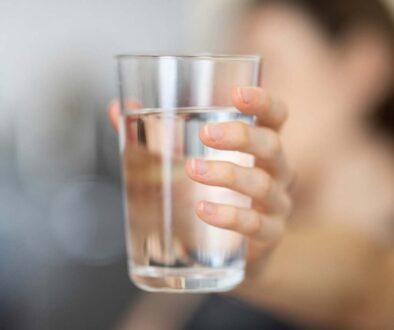Symptoms of Dehydration in Women
Staying hydrated is not just a matter of quenching your thirst; it is a fundamental aspect of maintaining overall health and well-being. Dehydration occurs when our bodies lose more fluids than they take in, leading to a host of adverse effects. Women, like men, can suffer from dehydration, but they may experience unique symptoms due to physiological differences. In this blog post, we will explore the 10 common symptoms of dehydration in women and discuss the best strategies to rehydrate effectively.
10 Symptoms of Dehydration in Women
- Dry or Sticky Mouth: An early sign of dehydration, a dry or sticky feeling in the mouth, can be uncomfortable and may lead to difficulties in swallowing.
- Dark-Colored Urine: Monitoring urine color is crucial. Dehydrated women often have darker urine, indicating concentrated waste and a lack of sufficient water intake.
- Fatigue and Dizziness: Dehydration reduces blood volume, leading to less oxygen supply to the brain and muscles, resulting in fatigue and dizziness.
- Headaches: Insufficient water in the body can lead to headaches or migraines as the brain temporarily contracts due to the lack of fluids.
- Dry Skin: Dehydration affects skin elasticity and moisture levels, leading to dry, flaky, and less supple skin.
- Rapid Heartbeat and Low Blood Pressure: Dehydration can cause an increase in heart rate and low blood pressure, leading to an irregular heartbeat.
- Constipation: Insufficient water intake can slow down bowel movements, causing constipation and discomfort.
- Muscle Cramps: Electrolyte imbalances due to dehydration can lead to muscle cramps and spasms, particularly during physical activities.
- Lightheadedness: Dehydration can make women feel lightheaded or faint, especially when standing up quickly.
- Reduced Urination: Dehydrated women may notice a decrease in urine output, as the body tries to conserve water.
Best Ways to Rehydrate
- Drink Water Regularly: The simplest and most effective way to rehydrate is to drink water regularly throughout the day. Aim for at least 8-10 glasses of water daily, or adjust intake based on activity levels and weather conditions.
- Consume Water-Rich Foods: Incorporate water-rich foods into your diet, such as fruits (watermelon, cucumbers, oranges) and vegetables (cabbage, lettuce, zucchini). These foods can contribute to your daily fluid intake.
- Limit Caffeine and Alcohol: Caffeine and alcohol have diuretic effects, increasing fluid loss from the body. Moderation in consumption and balancing with additional water intake is essential.
- Replenish Electrolytes: When engaging in intense physical activity or sweating excessively, replenishing electrolytes becomes crucial. Consume beverages with added electrolytes or eat foods rich in potassium, sodium, magnesium, and calcium.
- Hydrate Before, During, and After Exercise: Prioritize hydration during physical activities. Drink water before, during, and after exercise to maintain optimal fluid levels.
- Listen to Your Body: Pay attention to your body’s thirst signals. Don’t wait until you feel thirsty to drink water; proactively sip water throughout the day.
- Set Hydration Reminders: In today’s busy world, it’s easy to forget to drink enough water. Set reminders on your phone or use apps to prompt you to drink water at regular intervals.
- Carry a Water Bottle: Keep a reusable water bottle with you at all times. This makes it convenient to sip water throughout the day, whether you’re at work, running errands, or exercising.
- Infuse Your Water: If plain water becomes monotonous, add some flavor by infusing it with fruits like lemon, berries, or cucumber. This can make hydrating more enjoyable.
- Establish a Routine: Forming a daily hydration routine can help you maintain consistent water intake. Incorporate drinking water into daily activities like meals or bathroom breaks.
Dehydration can significantly impact a woman’s health and well-being, but recognizing the symptoms early on is essential for timely intervention. By being proactive and adopting smart hydration practices, women can easily maintain their fluid balance and enjoy the many benefits of being properly hydrated. Remember to drink water regularly, consume water-rich foods, and avoid excessive caffeine and alcohol. Let’s prioritize hydration and take charge of our health for a more vibrant and energetic life.



